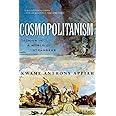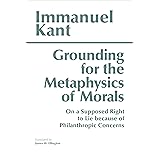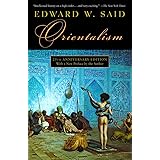
Enjoy fast, free delivery, exclusive deals, and award-winning movies & TV shows with Prime
Try Prime
and start saving today with fast, free delivery
Amazon Prime includes:
Fast, FREE Delivery is available to Prime members. To join, select "Try Amazon Prime and start saving today with Fast, FREE Delivery" below the Add to Cart button.
Amazon Prime members enjoy:- Cardmembers earn 5% Back at Amazon.com with a Prime Credit Card.
- Unlimited Free Two-Day Delivery
- Streaming of thousands of movies and TV shows with limited ads on Prime Video.
- A Kindle book to borrow for free each month - with no due dates
- Listen to over 2 million songs and hundreds of playlists
- Unlimited photo storage with anywhere access
Important: Your credit card will NOT be charged when you start your free trial or if you cancel during the trial period. If you're happy with Amazon Prime, do nothing. At the end of the free trial, your membership will automatically upgrade to a monthly membership.
Buy new:
-12% $14.91$14.91
Ships from: Amazon.com Sold by: Amazon.com
Save with Used - Good
$8.46$8.46
Ships from: Amazon Sold by: ZBK Wholesale

Download the free Kindle app and start reading Kindle books instantly on your smartphone, tablet, or computer - no Kindle device required.
Read instantly on your browser with Kindle for Web.
Using your mobile phone camera - scan the code below and download the Kindle app.

OK
 Audible sample Sample
Audible sample Sample 


Cosmopolitanism: Ethics in a World of Strangers (Issues of Our Time) Paperback – Illustrated, February 17, 2007
Purchase options and add-ons
“A brilliant and humane philosophy for our confused age.”―Samantha Power, author of A Problem from Hell
Drawing on a broad range of disciplines, including history, literature, and philosophy―as well as the author's own experience of life on three continents―Cosmopolitanism is a moral manifesto for a planet we share with more than six billion strangers.- Print length224 pages
- LanguageEnglish
- PublisherW. W. Norton & Company
- Publication dateFebruary 17, 2007
- Dimensions5.5 x 0.6 x 8.3 inches
- ISBN-10039332933X
- ISBN-13978-0393329339
The Amazon Book Review
Book recommendations, author interviews, editors' picks, and more. Read it now.
Frequently bought together

Similar items that may deliver to you quickly
Editorial Reviews
Review
― John Gray, The Nation
"Cosmopolitanism is... of wide interest―invitingly written and enlivened by personal history.... Appiah is wonderfully perceptive and levelheaded about this tangle of issues."
― Thomas Nagel, The New Republic
"Elegantly provocative."
― Edward Rothstein, New York Times
"[Appiah's] belief in having conversations across boundaries, and in recognizing our obligations to other human beings, offers a welcome prescription for a world still plagued by fanaticism and intolerance."
― Kofi A. Annan, former United Nations secretary-general
"[Appiah's] exhilarating exposition of his philosophy knocks one right off complacent balance.... All is conveyed with flashes of iconoclastic humor."
― Nadine Gordimer, winner of the 1991 Nobel Prize in Literature
"An attempt to redefine our moral obligations to others based on a very humane and realistic outlook and love of art.... I felt like a better person after I read it, and I recommend the same experience to others."
― Orham Pamuk, winner of the 2006 Nobel Prize in Literature
About the Author
Product details
- Publisher : W. W. Norton & Company; Reprint edition (February 17, 2007)
- Language : English
- Paperback : 224 pages
- ISBN-10 : 039332933X
- ISBN-13 : 978-0393329339
- Item Weight : 6.3 ounces
- Dimensions : 5.5 x 0.6 x 8.3 inches
- Best Sellers Rank: #281,933 in Books (See Top 100 in Books)
- #695 in Political Philosophy (Books)
- #897 in History & Theory of Politics
- #942 in Philosophy of Ethics & Morality
- Customer Reviews:
About the author

Kwame Anthony Appiah is the author of “The Ethics of Identity,” “Thinking It Through: An Introduction to Contemporary Philosophy,” “The Honor Code,” and the prize-winning “Cosmopolitanism.” Raised in Ghana and educated in England, he has taught philosophy on three continents and is currently Professor of Philosophy and Law at New York University. In the 1990’s he published three mystery novels—“Avenging Angel,” “Nobody Likes Letitia,” and “Another Death in Venice”—and he hopes to return to novel writing someday soon. Professor Appiah writes the “Ethicist” column in the New York Times Sunday Magazine. President Obama presented him with the National Humanities Medal in 2010; he gave the 2016 BBC Reith Lectures and he was the 2018 chair of the Man-Booker Prize jury. His 2018 book “The Lies that Bind: Rethinking Identity” was a Washington Post Notable Book of the Year. He maintains a website at www.appiah.net.
Customer reviews
Customer Reviews, including Product Star Ratings help customers to learn more about the product and decide whether it is the right product for them.
To calculate the overall star rating and percentage breakdown by star, we don’t use a simple average. Instead, our system considers things like how recent a review is and if the reviewer bought the item on Amazon. It also analyzed reviews to verify trustworthiness.
Learn more how customers reviews work on AmazonReviews with images
-
Top reviews
Top reviews from the United States
There was a problem filtering reviews right now. Please try again later.
Mr. Appiah, the renowned Princeton philosophy professor, challenges us with the paradox of a common humanity, among which, different ethnic and religious groups often do not share customs, or even the same values. The Cosmopolitan thesis is that, despite being strangers in many ways, our common humanity provides a basis for mutual respect and compassion.
What anchors the paradox at one end is that, for most of human history, we knew only our own kind, with limited need to understand, let alone to accept, the customs of people in other groups. Over the last few centuries, increased trade and communication, as well as industrial pollution and international terrorism, has changed framework. Since our actions can affect "lives everywhere," ethical living implies responsibilities beyond our immediate environment and social group. Humanity has become, in a sense, one "tribe."
Mr. Appiah reminds us that the view of being a citizen of the world reflects intellectual traditions at least as old as classical times; that Marcus Aurelius, whose works were attractive to many Christian intellectuals, himself sought to suppress Christianity; that, then again, Christianity, whose allegiances have often fueled persecution, originally spread from Paul's assertion of "neither Jew nor Greek . . . . for ye are all one in Christ Jesus." Yet, Mr. Appiah also reminds us, respect for those different includes respect for their freedom to be separate, as in the case of the Amish in the United States.
If you find yourself often straddling the same paradox and long to find a partner in the journey, you will find one in Mr. Appiah's short (196 pp.), varied, and challenging book. He provides examples of agreeing, yet agreeing to disagree. The non-Muslim for example, would agree on the devout's right to make a hajj to Mecca, but may not agree that a Deity has commanded it, or that avoiding pork is appropriate. The paradox is exemplified in explanations of the natural world. Even an agreement on facts leaves ambiguity in theories; e.g., whether it is germs or (many tiny) spirits that cause disease. Mr. Appiah makes a case that there are even fewer compelling arguments based on fact in the determination of values. The journey continues to the Ghana of the author's father, where we find out about "taboos" dealing with bush meat and menstruating women. A distinction made here is that, while taboos separate peoples, or classes within peoples (rulers, nobles, and slaves), morals differ in that they guide us in the treatment of others, so a taboo is a distinction with less of a difference. Even so, taboos are common to all cultures; westerners eat pigs but not cats.
A cosmopolitan understands and can live with difference, even when the differences are mutually understood. A "universalist," on the other hand, expects agreement through understanding. Mr. Appiah has us step back from taboos, to the more engaging questions of values. Still, while most people in a society value fair punishment, not all agree that punishment is worth the risk of punishing the innocent; while men in different societies relate their honor to the chastity of related women, not all of these men would agree that honor compels killing a woman who is raped. We find that reasoned argument does not compel either of these positions to those taking them. There seems to be a sort of getting "used to," that even a great mathematician (von Neumann) would endorse as reason's companion.
Mr. Appiah's treads lightly across serious subjects, and perhaps that is a cosmopolitan virtue. He contends that strangers are beyond communication mainly when they are imaginary; that is, when they are people we have not met one-to-one. Also, that, among diversity, there are inevitable commonalities: "I have failed to get people interested in Zeno's paradox in three continents." That, when caring about others requires an "out-group," one's caring is perhaps mere self-comfort.
Mr. Appiah explores the concept of cultural preservation. He proposes a difference between preserving culture and preserving cultures. He challenges the idea of "authenticity," as limited by the facts of history, such as the role of trade in the development of kente cloth and bagpipes. The need to "preserve" is argued as an ignorance of how free non-Westerners are to interpret American TV and consumer products. At worst, an attitude of cultural preservation condescends. We learn that the ancients saw the value of "contamination": stoic teachers traveling between city states, an African-born playwright, Publius Terentius Afer, using Greek ideas in Roman drama. We are offered, quoting this playright, a golden rule: "I am human: nothing is alien to me."
We are given a glimpse of the founder of the scouting movement, collecting (or looting?), as a prelude to a discussion of cultural objects. Mr. Appiah takes us to the question of whether a Norse goblet is more valuable in a Spanish museum or in a Norwegian family's living room. Cosmopolitanism proposes that the connection through ethnic identity across centuries is no less real than the connection through a common humanity.
Mr. Appiah includes some discussion of counter-cosmopolitans, for example, Islamic fundamentalists, to help us understand by way of contrast. The universal aspect in this case, and in others, is one that looks beyond borders or ethnicity, and excludes those who disbelieve. This discussion evokes the cosmopolitan understanding that different people will have different values, and that this is quite acceptable (with some exception for values not worth having). The cosmopolitan knows that one can learn from those with whom one disagrees. The counter-cosmopolitan sees nothing to be gained by reaching out from the faithful.
Finally, we are given the author's reflection on questions of sacrifice for the benefit of others. So, how much would we sacrifice to save the life of a child in a foreign country with nutrition and medicine? One hundred dollars? If that much, why not more - say, another hundred dollars. Or is there a point when it's more important to go the opera? And - is it really possible to save another's life for more than a few days, given the harsh realities of their life situation. Is it as easy as deciding to ruin a suit in order to save a child from drowning, and why? What is the principle behind the answers to these questions, if there is one.
The journey continues: Mr. Appiah provides an informative and provocative guide to how to treat strangers, meant of course, in the large. I do not guarantee the reader will find comfortable answers, only insights and surprising information, and that your answers, which are how you actually live, will now have questions to challenge them.
The author of this enthralling book - Kwame Anthony Appiah - challenges this kind of separative thinking by resurrecting the ancient philosophy of "cosmopolitanism." This school of thought that dates back almost 2500 years to the Cynics of Ancient Greece. They first articulated the cosmopolitan ideal that all human beings were citizens of the world. Later on, these ideas were elaborated by another group of philosophers: the Stoics.
According to Appiah, the influence of cosmopolitanism has stretched down the ages and through to the Enlightenment. He takes Immanuel Kant's notion of a League of Nations and the Declaration of the Rights of Man to be two manifestations of this ancient idea.
Appiah sees cosmopolitanism as a dynamic concept based on two fundamental ideas. First is the idea that we have responsibilities to others that are beyond those based on kinship or citizenship. Second is something often forgotten: just because other people have different customs and beliefs from ours, they will likely still have meaning and value. We may not agree with someone else, but mutual understanding should be a first goal.
The book is full of personal experiences. I doubt that anyone else could have written it: His mother was an English author and daughter of the statesman Sir Stafford Cripps, and his father a Ghanaian barrister and politician, who reminded his children to remember that they were "citizens of the world."
Appiah was educated in Ghana and England and has taught in both countries. He now holds a chair of Philosophy at Princeton. He is no starry eyed idealist, and he knows that differences between groups and nations cannot be wished away or ignored. But he contends, rightly, I think, that differences can be accepted without being allowed to become barriers.
As he says, "Cosmopolitans suppose that all cultures have enough overlap in their vocabulary of values to begin a conversation. But they don't suppose, like some Universalists, that we could all come to agreement if only we had the same vocabulary." The reason is simply this: most of us arrive at our values not on the basis of careful reasoning, but by lifelong conditioning and subjective beliefs and attitudes.
In parts of Europe, there have recently been misgivings about the growing diversity and multiculturalism of countries like the United Kingdom, with people asking whether it is doing no more than fracturing society. Appiah tackles this question head on. He has this to say, "If we want to preserve a wide range of human conditions because it allows free people the best chance to make their own lives, there is no place for the enforcement of diversity by trapping people within a kind of difference that they long to escape. There simply is no decent way to sustain those communities of difference that will not survive without the free allegiance of their members."
Cosmopolitanism, balances our "obligations to others" with the "value not just of human life but of particular human lives," what Appiah calls "universality plus difference." He remains skeptical about simple maxims for ethical behavior such as the Golden Rule. He swiftly demonstrates its failings as a moral precept. He argues that cosmopolitanism is the name not "of the solution but of the challenge."
This is an important book that will inevitably be controversial. In a world that is becoming more interconnected and shrinking by the day, and where the "clash of cultures" threatens our existence, Appiah has many new perspectives as he articulates a precise yet flexible ethical manifesto. He does not claim to have all the answers, but this book should be of interest to all of us as we try to make sense of the turmoil, challenges and opportunities of our globalizing world.
Interestingly, I had watched a TED talk by Appiah not too long back in which he had drawn a comparison between the Asante community and the Western world to note that in case of the former, there were a set of assumptions dictated by religion, which any explanation of either the physical or the spiritual had to satisfy before possibly gaining widespread acceptance. In this regard, Appiah’s example of the virus being the basis of some of the diseases and the parallel explanation for that through witchcraft as understood in his Asante community, was pretty insightful.
In chapter 7, Appiah speaks approvingly of the exchange (or contamination) that comes about as a result of globalization. While the benefits he attributes to this process are significant, he fails to properly identify the associated harms. An example of such a harm can be drawn from Equiano’s description of how slave traders who brought European goods to exchange for slaves, essentially incited the natives to indulge in slave trade and consequently, disrupted the previously established economic equilibrium of the native community.
While I enjoyed reading Cosmopolitanism, I couldn’t help but sense its utopian nature, which we can attempt to approximate but are not very likely to attain.












